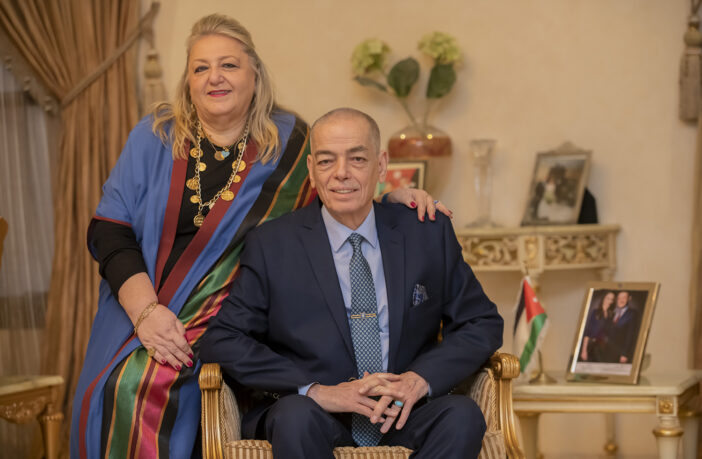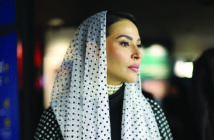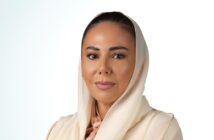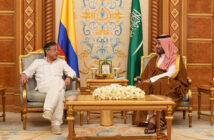Interview with Ambassador Ali Al Kayed and Mrs. Muna Rifai
The sanctity of the unity of two individuals can certainly become the catalyst of friendship between two families, communities, and eventually countries.
Tying the knot between Crown Prince of Jordan Hussein bin Abdullah and Ms. Rajwa Al Saif ultimately creates closer ties between Jordan and Saudi Arabia. This act of love becomes the reflection of mutual trust and respect between these two countries.
I observed the vision of this bond in the thoughts of Ambassador Ali Al Kayed and Mrs. Muna Rifai, which can empower people to convey the act of morality in the life of people but, above all, between two countries. I could not imagine a deeper message of peace in the political order of the world than what Ambassador Ali and Mrs. Muna defined it. I say this based on my personal experience with both of them, who have graciously accepted my request for an intimate conversation, which culminated with an uplifting interview.
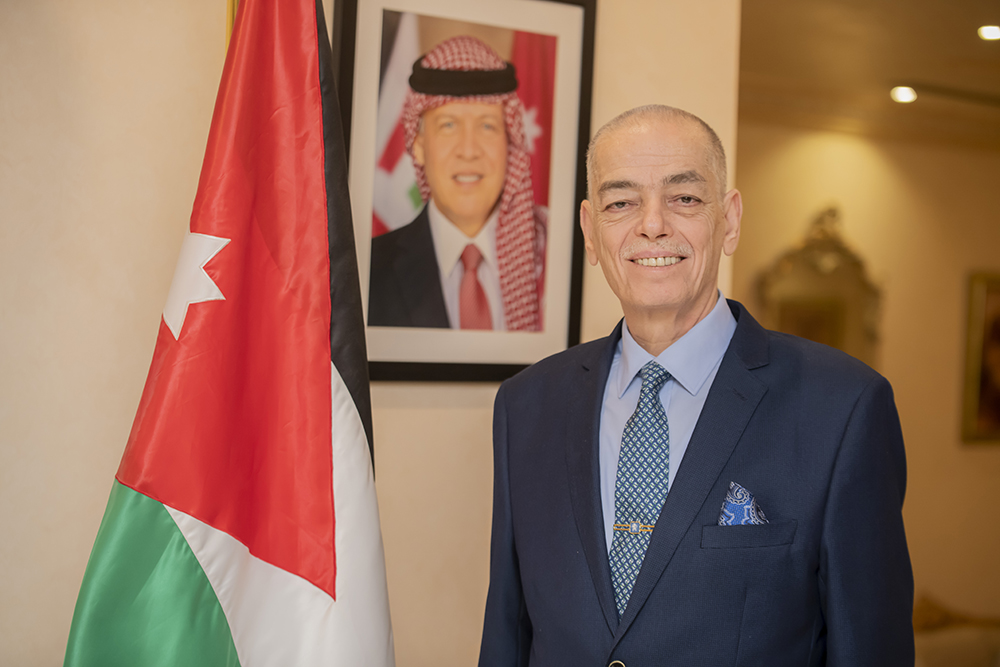
Interview with Ambassador of Jordan, H.E. Ali Al Kayed
What achievements of Saudi-Jordanian bilateral ties do you consider a milestone?
Similar to the history of the two countries, the history of bilateral ties between Saudi Arabia and Jordan goes back hundreds of centuries, intertwined with chronological and cultural threads. Therefore, to name only some of the achievements in these respects would be an unfair attempt. However, economic, political, and trade cooperations are the best achievements that have been rising for decades and continue to develop rapidly.
While this cooperation and flourishing diplomacy is made up of multi-layered elements, including the official representatives of the two countries and the business community, among other key actors, the deep and strong bond between the two royal families is the foundation leading to success. On an official note, an enduring and strong strategic partnership between Amman and Riyadh is a priority for the two countries. The leaders of both countries, representatives of trade, the healthcare system, and economic affairs, are fully aware of this and are working diligently to continue developing these ties.
On another note, I must recall the recent engagement of Jordan’s Crown Prince Hussein bin Abdullah to Rajwa Khaled bin Musaed bin Saif bin Abdulaziz Al Saif. I see this as yet another testimony of deep ties between the two countries, connected not only by political or trade interests but also aimed at bringing the people of the two countries closer.
What makes Jordan a promising country for Saudi investors, the business community, and vice versa?
A combination of several factors makes Jordan an attractive destination. First of all, its safety and laws governing investments. In order not to cite the entire Article of Investment Law, I will give a few examples, including exemption from customs duties, general sales tax, and in some cases, income tax reduction. Moreover, foreign investors can fully own investments in development and free zones.
Foreign investors enjoy privileges and guarantees, including national treatment, free movement of capital, protection against expropriation, and the possibility of using alternative dispute resolution mechanisms. In addition, foreign investors receive support in obtaining visas and residence permits for investors, their families, employees, and other services. In terms of where to invest, it is well known that Jordan houses natural and historical marvels such as the Dead Sea or Petra. Thus, tourism and recreation may be one of the most result-oriented investments, along with medical tourism and healthcare.
The investment opportunities in Saudi Arabia are huge. Although investment opportunities were open to local residents in the past, the transformation in the Kingdom opens up new horizons for foreign investment in this country, a treasure trove of natural resources. Investments in Saudi Arabia will be secure, safe, and protected by law in the interests of all parties.
By 2030, Saudi Arabia aims to become an oil-diversified economy. Besides oil, what do you consider an asset for Saudi Arabia?
Saudi Arabia should never be viewed and valued solely for its possession of the oil. It is a continental country that connects Europe, Africa, and Asia, giving it a unique advantage regarding trade routes and exports through the Arabian Peninsula. In addition, it is a country rich in minerals, which are often lacking in the leading economies of the world. Thus, in addition to oil, Saudi Arabia has much more to offer the world. I sincerely hope that Vision 2030 and its achievement will change and are already changing the image of Saudi Arabia in terms of export and import opportunities.
What makes Saudi Arabia an attractive destination for Jordanians? Why should Saudis visit Jordan?
To answer this question, I will start with my own allegory: “All that is Saudi is Jordanian; everything that is Jordanian is Saudi.” Looking back at history and chronicles, for many centuries, Jordanians have been traveling to live and work in Saudi Arabia in addition to the annual pilgrimage. Similarly, Saudis travel to Jordan to invest and create business and job opportunities for locals.
I believe that Saudis and Jordanians consider these two countries their homes, which we often do not dedicate enough time to explore. However, I hope that both Saudis and Jordanians will start traveling to either country to explore their homes and learn more about the strong ties between the two countries, including the records of Petra and Al-Ula. The two countries are blessed with the best in nature and architecture that requires time to be dedicated to exploring and memories to be collected.
Please discuss the role of the general public in creating strong ties between countries, traditions, religions, and cultures.
Equality in all religions. The Constitution of the Hashemite Kingdom of Jordan states that Jordanians must be equal before the law without discrimination in rights and duties, even if they differ in race, language, or religion. I grew up in a community and played with peers whose religion I did not know until later as an adult. This provides the country stability and creates a strong community where people live and work together on equal rights and rules, regardless of religion. Moreover, this message, promoted by the Hashemite Royal Court, is also true for the country’s foreign policy: everyone is equal, regardless of religion, ethnicity, race or physical appearance.
On the subject of tolerance and multicultural collaboration, what will be your remarks for the concept of the Diplomatic Quarter?
First and foremost, the Diplomatic Quarter provides privacy and security. This privacy, security, and at the same time, comfort leads to productive and multifaceted communication in one place. In addition to leisure and recreation areas, the most important thing for me is the convenience of the working area. In this regard, the Diplomatic Quarter exceeds all expectations. This approach to hosting foreign representatives in the country should be welcomed and reflected by other countries.

Interview with Mrs. Muna Rifai
What is your definition of the role of an ambassador’s spouse? What are the requirements to serve in this vocation, often behind the scenes?
As the ambassador’s wife, the most important role in the team is to represent our country in its best and truest image; a duty of all ambassadors and spouses. Although this role can sometimes seem tough, it is nonetheless a very interesting and engaging. As the wife of an ambassador, I am also at the center of everything and should be in touch with the spouses of ambassadors.
This is a full-time job that, along with responsibility, brings a lot of joy and the privilege of constantly exploring the world within a small community. It provides an excellent opportunity to teach children how to live, play and deal with different cultures and nationalities, paving their future as global citizens who will respect both their roots and the world.
In addition to my national and social responsibilities, I am the President of the organization Wives & Husbands of Heads of Mission (WHHOM). This includes many cultural events, visits and monthly meetings. In this regard, I must say that this year started very fruitfully, including the celebration of Women’s Day under the slogan of Embracing EQUITY.
Summing up, being the wife of an ambassador is a challenging, yet truly rewarding position.
In each country, you meet women with unique lifestyles and beliefs. How has your perception of women’s empowerment changed over these years?
Before coming to Saudi Arabia, we served in Australia, the United Arab Emirates, and Morocco. Women are very different in every country. They are shaped and developed by tradition, culture, daily routine, and the environment they live in. However, they are all strong and have an inner core that gives them the ability to do great things in their society and beyond.
In saying this, I want to reflect on the empowerment of Saudi women because when we arrived, Vision 2030 was just launched, and it was only the beginning of the transformation. However, even then, an abaya never defined Saudi women. Abaya is part of a culture and tradition that should be respected. What sets Saudi women apart is their perseverance and determination to succeed and make a difference for greater good.
An empowered woman is not only a successful business or parliamentary woman but also one whose voice is heard, respected, and appreciated in the family. Without being an empowered woman, it is impossible to raise the nation’s future leaders. Thus, I have to pay tribute to Saudi women, a unique example of distinct empowerment, who use every opportunity to demonstrate their strength and determination, both then and now, during the transformation.
How would you define Saudi women’s role in society?
I do not want to separate any particular job that men do better than women because any work and contribution made by a Saudi man can be replicated and even better mastered by women. However, I see Saudi women as guardians of art and culture. Every gallery or historical art collection is always enriched with fine and delicate works by Saudi women. Therefore, despite the pace of transformation and modernization under Vision 2030, Saudi women will raise and nurture children and future leaders who will carry and respect the arts and culture of the country.
What makes Saudi Arabia a unique place for you? What will you take when leaving?
There is a saying that when one comes to Saudi Arabia, one feels uncertainty in the new and culturally unique environment. However, when leaving Saudi Arabia, people cry because nowhere else can one find such hospitality, generosity, and care as in Saudi Arabia. In three decades of service with my husband, I learned the well-known rule that when the time comes, we must leave and not look back; hence I collect memories in my heart to remember this place and its people as a hub of generosity, kindness, warmth, and care.

